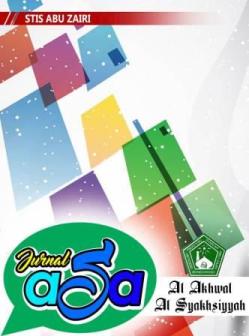The Role of Kyai in Fostering Family Harmony in Islamic Boarding Schools
DOI:
https://doi.org/10.58293/asa.v3i2.30Keywords:
Kyai, membina, keluarga, Pondo PesantrenAbstract
The kiai is the central figure in the Islamic boarding school and has its own characteristics compared to other educational figures. In developing Islamic boarding schools, of course, the kiai has a strategy that is adapted to his capacity, such as the development of strategies for increasing human resources in outer and inner independence to lead families, students and communities.
The purpose of this study is to describe the role of the kyai as a leader in managing the dynamics of family harmony (Household, Santri and Community) in the Islamic boarding school environment.
This study uses a descriptive qualitative approach. By case study type. Data collection techniques in this study were in-depth interviews, observation, and documentation. The data analysis uses data condensation, data presentation, and drawing conclusions.
The role of the Kyai is to use his function properly to provide mutual benefits to others, where as religious leaders often provide religious teachings and lectures so that it is possible for a kyai to become the center of attention and be used as a role model by the family of alumni students and the community. Kyai's steps in fostering family harmony in Islamic boarding schools have varied ways of giving their roles. To develop leadership integrity in the community, their families and students, they must have a strategy, namely respecting family, friends or other people, building trust between individuals and creating harmony, strengthening shared values. create a communication that has a certain pride and find the basics of common ground.
Downloads
References
Adi Suwarno, Suparjo (2019). Tradisi Kawin Culik Masyarakat Adat Sasak Lombok Timur Perspektif Sosiologi Hukum Islam.(ASA : Jurnal Kajian Hukum Keluarga Islam, 1(1), 29–48
Adi Suwarno, S. (2020). Konsep Nafkah Dalam Keluarga Islam: Telaah Hukum Islam Terhadap Istri Yang Mencari Nafkah. ASA : Jurnal Kajian Hukum Keluarga Islam, 2(1), 1–23.
Hasbullah, 2016 “Dasar-Dasar Ilmu Pendidikan”, (PT. Raja Grafindo Persada, Jakarta,)
Munawar Fuad noeh dan Mastuki HS. 2012”Menghidupkan ruh dan pemikiran KH Amad Siddiq” (Jakarta; PT. Gramedia Pustaka Utama)
Nugraha Adi Baskoro. “Hubungan Sosial Kyai dengan Santri mukim dan Santri Kalong” (Yogyakarta. UIN Suka. 2014).
Asri MAwaddah, I., & Taufik. (2019). DAMPAK PERCERAIAN ORANG TUA TERHADAP PSIKOLOGI ANAK DI DESA SULEK TLOGOSARI BONDOWOSO. ASA : JURNAL KAJIAN HUKUM ISLAM, 1(1), 12–28. Diambil dari https://ejournal.stisabuzairi.ac.id/index.php/asa/article/view/2
Holid, M. (2019). IMPLIKASI PERKAWINAN DI BAWAH UMUR TERHADAP KEHARMONISAN DALAM RUMAH TANGGA DI DESA SUKOGIDRI LEDOKOMBO JEMBER. ASA : JURNAL KAJIAN HUKUM ISLAM, 1(1), 1–11. Diambil dari https://ejournal.stisabuzairi.ac.id/index.php/asa/article/view/1
Nur Chlolis Madjid. 1997“ Bilik-bilik Pesantren dan sebuah potret perjalanan, Jakarta. Paramadina.
Raharjo, 2008, Pengantar Pendidikan Islam, (PT. Raja Grafindo Persada, Jakarta)
WJS. Poerwadarminta’ 2006” Kamus ilmiah. Jakarta. Pustaka Belajar”
Holid, M. IMPLIKASI PERKAWINAN DI BAWAH UMUR TERHADAP KEHARMONISAN DALAM RUMAH TANGGA DI DESA SUKOGIDRI LEDOKOMBO JEMBER. ASA 2019, 1, 1-11.
Zamaksyari dhofier. 1982 “Tradisi Pesantren, Studi tentang Pandangan hidup Kyai”. (Jakarta. LP3ES.)
Zimiek Manfred. 2009.“ Pesantren dalam Perubahan Sosial” (Jakarta P3M.)
Downloads
Published
How to Cite
Issue
Section
License
Copyright (c) 2021 Zainul

This work is licensed under a Creative Commons Attribution 4.0 International License.






